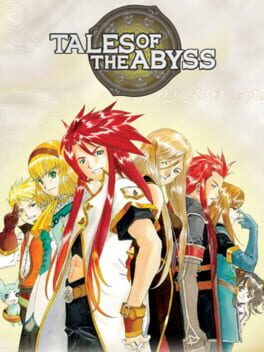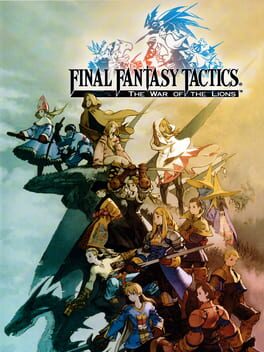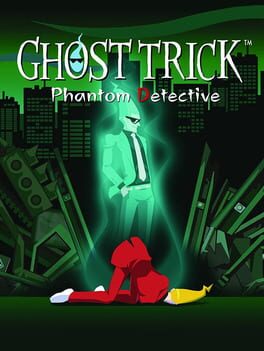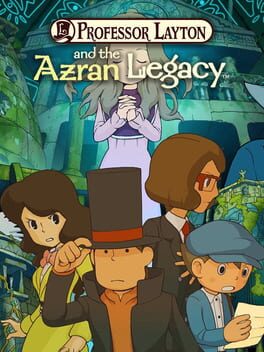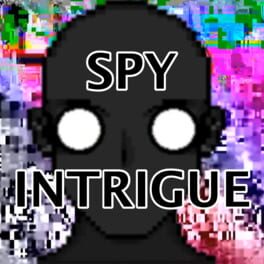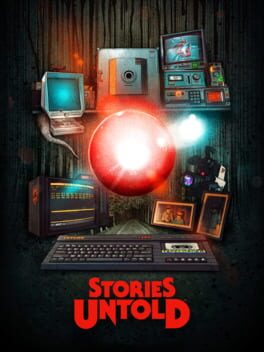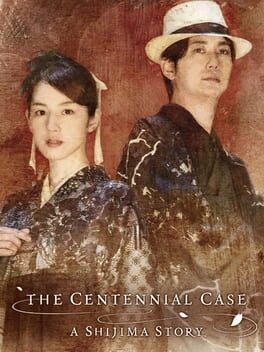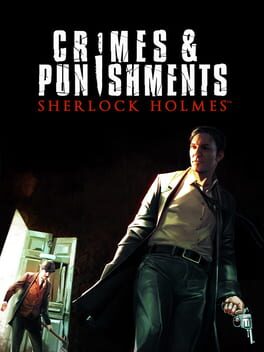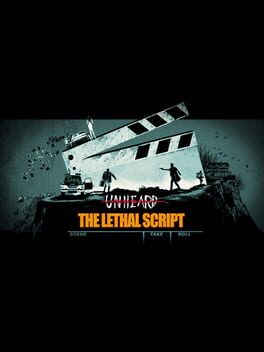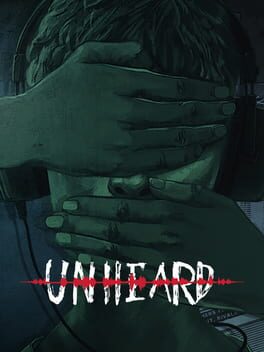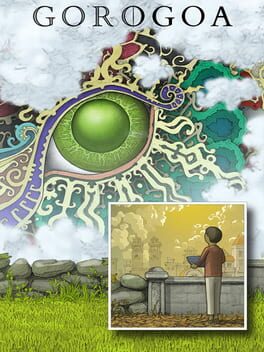bellwoods
Bio
They/them
I tend to play adventure, puzzle, and mystery/detective games, as well as anything with a good meaty plot.
★ - Complete waste of time and/or literally unplayable.
★★ - I got something out of it, but overall wouldn't recommend.
★★★ - Conditionally recommend: good but didn't wow me, or did wow me but also had serious issues that take it down from a 4.
★★★★ - Unreservedly recommend, I liked it a lot.
★★★★★ - Highly innovative and/or a classic, "must play" of the genre.
They/them
I tend to play adventure, puzzle, and mystery/detective games, as well as anything with a good meaty plot.
★ - Complete waste of time and/or literally unplayable.
★★ - I got something out of it, but overall wouldn't recommend.
★★★ - Conditionally recommend: good but didn't wow me, or did wow me but also had serious issues that take it down from a 4.
★★★★ - Unreservedly recommend, I liked it a lot.
★★★★★ - Highly innovative and/or a classic, "must play" of the genre.
Badges

Donor
Liked 50+ reviews / lists

Pinged
Mentioned by another user

Busy Day
Journaled 5+ games in a single day

Roadtrip
Voted for at least 3 features on the roadmap

Best Friends
Become mutual friends with at least 3 others

On Schedule
Journaled games once a day for a week straight

Shreked
Found the secret ogre page

Organized
Created a list folder with 5+ lists

Listed
Created 10+ public lists

GOTY '23
Participated in the 2023 Game of the Year Event

1 Years of Service
Being part of the Backloggd community for 1 year

Noticed
Gained 3+ followers

Liked
Gained 10+ total review likes

GOTY '22
Participated in the 2022 Game of the Year Event

N00b
Played 100+ games
Favorite Games
246
Total Games Played
014
Played in 2024
014
Games Backloggd
Recently Played See More
Recently Reviewed See More
Moments of atmospheric brilliance ("you" getting closer and closer was clever and genuinely had me on the edge of my seat), but ultimately drives full-throttle down a frame-plot road that's been traversed by many other games, and more elegantly. It's not bad, just... overdone. In the IF genre alone you've got Photopia, Shade, and SPY INTRIGUE, off the top of my head.
Anyway, there are already reviews dissecting the ending, so I'll just talk about my personal bugbear: text parser pastiches need to stop using "USE". Actual parser games don't usually use "USE"; that's a menu-based adventure game thing. You cannot use ye flask. Stories Untold has the aesthetics of a Commodore 64 game, but the play logic is totally unlike any text parser game, in a way that I found outright distracting. I don't mean the verb selection menu--that's a smart way of levelling the playing field for people who haven't engaged with the genre--but things like AROUND being a noun which you can combine with GO or LOOK. You might say (perhaps the devs said) that real parser games are clunky, and nobody actually wants to play one, and the community of people who do play them in the 2020s is quite small. Sure. 100% fair. But if that's the reasoning... why make one? Why set this game in the 80s at all?
Anyway, there are already reviews dissecting the ending, so I'll just talk about my personal bugbear: text parser pastiches need to stop using "USE". Actual parser games don't usually use "USE"; that's a menu-based adventure game thing. You cannot use ye flask. Stories Untold has the aesthetics of a Commodore 64 game, but the play logic is totally unlike any text parser game, in a way that I found outright distracting. I don't mean the verb selection menu--that's a smart way of levelling the playing field for people who haven't engaged with the genre--but things like AROUND being a noun which you can combine with GO or LOOK. You might say (perhaps the devs said) that real parser games are clunky, and nobody actually wants to play one, and the community of people who do play them in the 2020s is quite small. Sure. 100% fair. But if that's the reasoning... why make one? Why set this game in the 80s at all?
An early footnote in The Centennial Case outlines possible tricks in detective fiction, including the "narrative trick"--misleading the reader via the narrative delivery of prose writing, e.g. unreliable narrators--but notes that such tricks are considered "impossible in films and TV". Naturally, anyone in the game's target audience (the type of mystery fan who reads the sleuth spotlights at the back of Detective Conan volumes) may wonder if this FMV game will try its hand at inventing one. May build a few logic hexagons, so to speak, about what could be done with this format. I did, and the story still threw me just far enough off the scent to be surprised. They accomplished their goal in a pretty clever way, so kudos to them.
Mind, we are talking about a type of trick that hasn't been done in films and TV. Exploiting the medium for narrational meta-tricks is nothing new to video games and VNs. You can find effective uses of these twists in works from Umineko to Undertale to Kotaro Uchikoshi's entire oeuvre. And that's my sticking point: Centennial Case doesn't seem all that interested in being a video game. The interactive logic board segments are the weakest parts. They're similar to Sherlock Holmes: Crimes and Punishments' deduction system but more mechanically obtuse (albeit more aesthetically pleasing). My best interpretation of what was going on here is a simulation of the kind of wild theorizing a reader performs while engaging with a mystery novel, but I didn't have a consistent sense of what these logic chains were supposed to represent. They certainly aren't deductions. "Clues" can be evidence OR possible answers. The resulting hypotheses also often fell prey to sloppy wording, or possibly muddy translation (e.g. whatever distinction they were driving at with "the culprit burned the evidence" vs. "the culprit set a fire to burn evidence"). Basically, while I didn't dislike the logic system nearly as much as some people, I didn't feel like it added much. I would've liked the story equally if it had been a TV series.
That all sounds kind of negative, so I want to say, I did like Centennial Case. A lot. It's full of references to the history of detective fiction, situated in historical context, and that stuff is like catnip to me. While most of the cases were nothing to write home about, they were solid, and I had plenty of fun with them. The epilogue was great, and I loved Josui. Add a new Character Of All Time to the list, lads.
Mind, we are talking about a type of trick that hasn't been done in films and TV. Exploiting the medium for narrational meta-tricks is nothing new to video games and VNs. You can find effective uses of these twists in works from Umineko to Undertale to Kotaro Uchikoshi's entire oeuvre. And that's my sticking point: Centennial Case doesn't seem all that interested in being a video game. The interactive logic board segments are the weakest parts. They're similar to Sherlock Holmes: Crimes and Punishments' deduction system but more mechanically obtuse (albeit more aesthetically pleasing). My best interpretation of what was going on here is a simulation of the kind of wild theorizing a reader performs while engaging with a mystery novel, but I didn't have a consistent sense of what these logic chains were supposed to represent. They certainly aren't deductions. "Clues" can be evidence OR possible answers. The resulting hypotheses also often fell prey to sloppy wording, or possibly muddy translation (e.g. whatever distinction they were driving at with "the culprit burned the evidence" vs. "the culprit set a fire to burn evidence"). Basically, while I didn't dislike the logic system nearly as much as some people, I didn't feel like it added much. I would've liked the story equally if it had been a TV series.
That all sounds kind of negative, so I want to say, I did like Centennial Case. A lot. It's full of references to the history of detective fiction, situated in historical context, and that stuff is like catnip to me. While most of the cases were nothing to write home about, they were solid, and I had plenty of fun with them. The epilogue was great, and I loved Josui. Add a new Character Of All Time to the list, lads.
I played the demo of this at a game development conference over a decade ago (sheesh!), loved it, and in my usual manner swore I would get around to the full 2017 version definitely, maybe, at some point. I finally did, and had a great time. Wonderfully unique puzzle game, and while some might find it a little on the short side, I felt like all the elements were watchmaker-perfect in their integration. No wasted space; it knows exactly what it wants to do and it does it.
Gorogoa is a game about perspective, both in its central puzzle mechanics and its story. A dragon threatens a city (as these stories go) and the only way to appease it is a sacrifice. Thus a boy goes on a quest for five fruits. But, as the player eventually susses out, this journey can only be completed by navigating through scenes from the rest of the boy's life, after he has already failed, and the city is destroyed and then rebuilt. You end up manipulating not only the locations in the city, but eventually thought, time, and memory. It's an interesting, fable-like structure. Combined with the detailed and delicate art, the overall effect put me in mind of a Colin Thompson storybook. But I'm mainly giving it 5 stars because fairly cluing puzzles with zero text is incredibly difficult, and this game does it incredibly well. I always knew the shape of what I was supposed to do, if not the "how".
Gorogoa is a game about perspective, both in its central puzzle mechanics and its story. A dragon threatens a city (as these stories go) and the only way to appease it is a sacrifice. Thus a boy goes on a quest for five fruits. But, as the player eventually susses out, this journey can only be completed by navigating through scenes from the rest of the boy's life, after he has already failed, and the city is destroyed and then rebuilt. You end up manipulating not only the locations in the city, but eventually thought, time, and memory. It's an interesting, fable-like structure. Combined with the detailed and delicate art, the overall effect put me in mind of a Colin Thompson storybook. But I'm mainly giving it 5 stars because fairly cluing puzzles with zero text is incredibly difficult, and this game does it incredibly well. I always knew the shape of what I was supposed to do, if not the "how".
